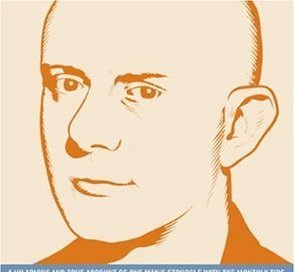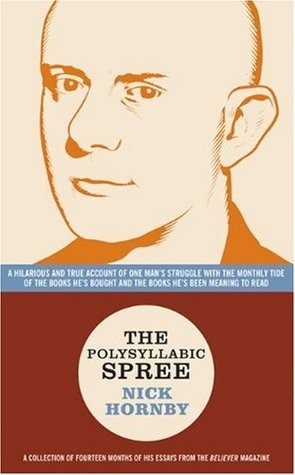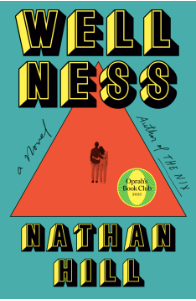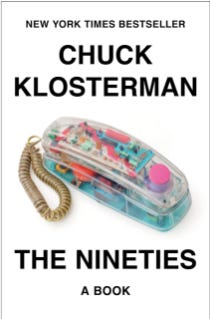When I packed up my life in Johannesburg a little over two years ago, I parted with most of my massive collection of books. This wasn’t because they failed to spark joy. Giving my books away was sad and hard and horrible. Shedding books sparked pain and anxiety. But I had a good reason to make the sacrifice: I was downsizing my life to cut down on overheads so I could free up time and space to write. The purge was, at least partly, inspired by Cait Flanders’ book The Year of Less – not to be confused with the utterly delightful Less by Andrew Sean Greer, and not to be read if you’re not ready to upend your life and accidentally give away all your crockery, most of your clothes and your dining room table.
I didn’t get rid of my entire library: I kept almost all the collections of poetry I owned, a handful of beloved favourite books I couldn’t bear to let go, and a single shelf of unread books that I was dead-set on reading “sometime soon”.
I had been dead-set on reading some of these books “sometime soon” for a few decades, but for Nick Hornby’s biblio-biography The Polysyllabic Spree, sometime soon arrived in November 2024. This “hilarious and true account of one man’s struggle with the monthly tide of the books he’s bought and the books he’s been meaning to read” – story of my life – has a slightly scuffed / possibly moth eaten cover, was purchased in a second-hand store in a time before memory for R12, and had been sitting on my dead-set shelf ever since. Why hadn’t I read it before!? I like Hornby, and had recently read (and loved!) High Fidelity - but it took a friend mentioning The Polysyllabic Spree as the book that turned him on to his favourite poet to remind me of my copy sitting on the dead-set shelf. It was a great read – and I don’t say this just because it distracted me from my looming deadline so entertainingly.
The whole book is very relatable, but there’s an especially relatable moment in his account of his reading during October 2003, in which he presses Great Expectations upon a friend who hasn’t read it, but then realises he can’t really remember anything about the book.
“But when I tried to recall anything about it other than its excellence, I failed. Maybe there was something about a peculiar stepfather? Or was that This Boy’s Life? And I realised that, as this is true of just about every book I consumed between the ages of, say, fifteen and forty, I haven’t even read the books I think I’ve read. I can’t tell you how depressing this is. What’s the fucking point?
Story of my life …
I usually just race from one book to the next, trying to get through as many titles as possible in any given year, and keeping a clinical, chronological list of what I’ve read with a simple 5-star rating system to remind me of what I liked. Looking at my list from 2024 in early 2025, I can still remember, however vaguely, how much I loved some of the books, but not exactly why, and I realise I’ve definitely already forgotten a lot of the profound things I gleaned from many of them. I read them, yes, but did I read them well enough to remember them?
Which is why I decided to, henceforth, keep a better record of the books I spend time with.
Here’s Hornby again:
We are never allowed to forget that some books are badly written; we should remember that sometimes, they’re badly read too.
Starting now, I’d like to become a better reader, reading less*, but paying more attention, taking more time to process and reflect on what I’ve read, and taking care to distill the wisdom, insight and pleasure into something more visceral than a star-rating or a quote copied into my commonplace book.
Sure, I’ll share the complete bibliography of everything I read in 2024 complete with star-ratings [here], but in the spirit of reading less, but better, here’s my top recommendations from 2024:
FICTION
Wellness - Nathan Hill
Instructions for a Heatwave - Maggie O’Farrell
Tom Lake - Ann Patchett
Bel Canto - Ann Patchett
Big Swiss - Jen Beagin
Borne - Jeff Vandermeer
God’s Pocket - Sven Axelrad
Tell Me Everything - Elizabeth Strout
All Fours - Miranda July
Intermezzo - Sally Rooney
The Stand & It - Stephen King
MEMOIR
Just Kids, M Train, & Year of the Monkey - Patti Smith
Dog Years - Mark Doty
An American Childhood - Annie Dillard
NON-FICTION
The Nineties - Chuck Klosterman
The Burnout Society - Byung-Chul Han
How to Do Nothing & Saving Time - Jenny O’Dell
The Polysyllabic Spree - Nick Hornby
POETRY
Wrong Norma - Anne Carson
School of the Arts - Mark Doty
The Hurting Kind, Bright Dead Things & The Carrying - Ada Limon
Dog Songs - Mary Oliver
AFRIKAANS
Onrus op Steynshoop - Ingrid WInterbach
Leo - Deon Meyer
Sluitstuk - Johann Rossouw
Ek en jy bestaan nie - Danie Marais
Om my kastele in Spanje te sloop - Jaco Barnard-Naudé
Kinderlê - Lynthia Julius
Die man wattie kinnes vang - Nathan Trantraal
Seun - Dana Snyman
Die melkweg en die miskruier - Jeanette Ferreira
Toorbos - Dalene Matthee
RECOMMENDED FOR WRITERS
Bird by Bird - Anne Lamott
The Writing Life - Annie Dillard
Making a Good Writer Great - Linda Seger
Steal Like an Artist, Show Your Work, Keep Going - Austin Kleon
I hope to share something juicy details about these books in later essays – about the ways they seeped into my days, coloured my moods and shaped my thinking … or just to tell you about the pure pleasure (and practicalities) of reading 2500 pages of Stephen King in ten days without getting bed sores.
I look forward to reading less with you, and getting more from every book.
And, I’ll let Nick Hornby have the final word, about the meaning of our personal libraries, no less:
All the books we own, both read and unread, are the fullest expression of self we have at our disposal. […] With each passing year, and with each whimsical purchase, our libraries become more and more able to articulate who we are, whether we read the books or not.
*Really, if you haven’t read it, I implore you to read Less, which won the Pulitzer Prize in 2018.
BIBLIOGRAPHY
Dickens, Charles. Great Expectations. 1861.
Flanders, Cait. The Year of Less. 2018.
Greer, Andrew Sean. Less. 2017.
Hornby, Nick. High Fidelity. 1995.
Hornby, Nick. The Polysyllabic Spree. 2004.












